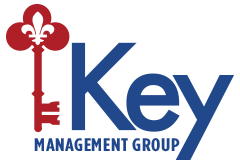Hotel Management Glossary
There are currently 58 Glossary Items in this directory beginning with the letter P.
P&L
Short for the profit and loss statement, also a synonym for the income and expense statement. The P&L records total hotel revenues and expenses for a specific time period.
P&P Manual
Short for policies and procedures manual. A publication that provides an outline of how the specific duties of each job are to be performed.
Pace Report
A document summarizing confirmed (group) sales made by the sales and marketing department.
Package
A group of hospitality services (such as hotel rooms, meals and airfare) sold for one price. For example, a Valentine's Day getaway package to Las Vegas offered by a T.A. might include airfare, lodging, meals, and show tickets for two people at one inclusive price.
Paid-Out
Cash disbursed by the hotel on behalf of a guest and charged to the guest account as a cash advance.
Par Level
Inventory levels of recycled items are measured in par numbers. Mostly linen. Par means the standard number of inventoried item that must be on hand to support daily, routine housekeeping operations. One par is also referred to as a house setup.
Parent Company Hotel
A property which is owned and operated by a multiple-unit company. Parent company hotels often carry the same name, and their managers report to a central or corporate headquarters. The parent company typically establishes standard operating procedures.
Payroll Accounting Module
A back office computer application which processes such data as time and attendance records, pay distribution, and tax withholdings.
Per Key
A term used to describe the cost of a hotel acquisition based on the number of rooms (keys) purchased. Its value comes in allowing comparison between hotels of unequal size (number of rooms).
Petty Cash
A small amount of cash available on-site that is not co-mingled with cash banks for revenue centers and is used to make small, miscellaneous purchases.
Petty Cash Control
A technique controlling petty cash disbursements by which a special small cash fund is used for minor cash payments and periodically reimbursed.
PIA
(Short form for Paid in Advance) A guest who pays his or her room charges in cash during registration. PIA guests are often denied in-house credit.
Pick-Up Error
En error on a posting machine which occurs when the user enters an incorrect previous balance in the process of posting.
Pickup
The actual number of rooms used by a client in a defined time period. Or - The proportion of previously reserved rooms that are ultimately occupied.
PIP
Short form of Product Improvement Plan. A document detailing the property upgrades and replacements that will be required if a hotel is to be accepted as one of a specific brand's franchised properties.
Plant
An outside person hired by a hotel to experience hotel services and report the findings to management.
PM
Short form of Preventative Maintenance Program. A specific inspection and activities schedule designed to minimize maintenance-related costs and to prolong the life of equipment by preventing small problems before they become larger ones.
PM Checklist
A tool developed to list all of the critical areas that should be inspected during a PM (Preventive Maintenance) review of a room, area, or piece of equipment.
PMS
Short for "property management system." This term refers to the computerized system used by the hotel to manage its rooms revenue, room rates, room assignments, and reservations, as well as other selected guest service functions.
Point of Sale
A computer system that contains its own input and output components and, perhaps, some memory capacity but without a central processing unit.
POM
Short for "Property Operation and Maintenance." The term is taken from the Uniform System of Accounts for Hotels and refers to the segment of the income statement that details the costs of operating the E&M department.
Portals
A gateway or entrance to a room or space. A Web portal is a Web site that offers a broad range of services, resources, and links for various interests or for a specified area of interest.
POS Terminal
A computer system containing its own input and output components and, perhaps, some memory capacity without a central processing unit.
Post
To enter a guest's charges into the PMS, thus creating a permanent record of the sale, as in "Please post this meeting room charge to Mr. Walker's folio."
Pre-Key
Making an electronic key for a guest room prior to the actual arrival of the guest who will be assigned to that room.
Pre-Registration
A process by which sections of a registration card or its equivalent are completed for guests arriving with reservations. Room and rate assignment, creation of a guest folio, and other functions may also be part of preregistration activity.
Preferred Vendors
Often provide products or services with special terms or lower prices, in exchange for long-term contracts.
Premium Bran Beverages
The highest-priced and highest-quality beverages generally available. Examples include Johnny Walker Black Scotch and Bombay Sapphire Gin; these brands are sometimes referred to as "Super Call" brands.
Prepaid Expenses
Expenditures made for items prior to the accounting period in which the item's actual expense is incurred.
Prepayment Guarantee
A type of reservation guarantee which requires a payment in full made before the day of arrival.
Price Fence
The specific requirements that describes who is and is not eligible for a special pricing offer. (Yield Management)
Probabilistic Modeling
The application of statistical formulas to past events for the purpose of predicting the likelihood of future events.
Product Usage Report
A report detailing the amount of an inventoried item used by a hotel in a specified time period (i.e., week, month, quarter, year).
Product/Service Diiferentiation
Attributes associated with a product or service that cause customers to prefer it over competing products or services.
Profitability
Revenue-Expenses = Profit. The GM's assignment of specific revenues and expenses to a given department will, in great measure, dictate profit levels in that department.
Profitability Ratios
A common measure of overall financial success; they provide a barometer for management with regard to how well strategies are working, and they may also provide warning of downward trends and thus the need for more- dramatic changes; external stakeholders pay critical.
Programmed Decisions
Routine or repetitive decisions that can be made after considering policies, procedures, or rules.
Progressive Discipline
A process of negative discipline in which repeated infractions result in an increasingly severe penalty.
Property Direct
A method of communicating reservation requests directly to a hotel, by telephone, mail, property-to-property link, telex, cable, or another method.
Property Management system (PMS)
A computer software package which supports a variety of applications related to front office and back office activities. See also Front Office Applications.
Prospect
An individual or group who, while not currently using the hotel, are considered potential clients with a good likelihood of using the hotel in the future.
Public Space
Those areas within the hotel that can be freely accessed by guests and visitors. Examples include lobby areas, public rest rooms, corridors, and stairwells.
Pull Marketing
Asks the target audience's permission to send marketing message or present message in such an attractive way to pull the audience towards it like Opt-in Marketing or Permission Marketing.
Punitive Damages
This monetary amount is assessed to punish liable parties and to serve as an example to the liable party as well as others not to commit the wrongful act in the future.

